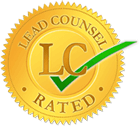One of the most complex aspects of starting a company is choosing the right business structure. There are several business structures to choose from, each of which affects personal liability and taxes differently.
The following are the most common options. Most require official registration, as well as adherence to certain operational rules to remain in compliance.
Sole Proprietorship
Sole proprietorships are always owned by a single person. While that means you retain total control over your operations, you are also personally liable for any losses your business incurs. You remit business taxes through your own personal tax return. Sole proprietorships do not require official registration.
Partnership
Partnerships consist of two or more owners. With a limited partnership, there is a general partner who has full control of the company and full liability in the event of an issue. The remaining partners have limited liability, as well as limited control. With a limited liability partnership, every partner receives the same liability protection.
Like sole proprietorships, partners must pay business taxes through their personal returns. However, general partners also pay a self-employment tax.
Limited Liability Company (LLC)
One or more people can own an LLC. They offer a high level of personal liability protection, meaning your personal finances are off-limits in the event of a business loss. In addition to the self-employment tax, LLC owners also report taxes for profits and losses through their personal returns.
Corporation
There are a few different corporate structures to choose from, only two of which will be discussed here.
“C” corporations are completely separate from the owners. That means they have separate liability and tax obligations.
“S” corporations can ease the burden of double taxation, which is a common drawback of C corporations. Accordingly, S corporation owners pay business taxes through their personal tax returns and the corporation is not taxed.
It is also possible to combine different business structures if your enterprise has unique needs. For example, an LLC can also fall under a corporate designation depending on business taxes.





